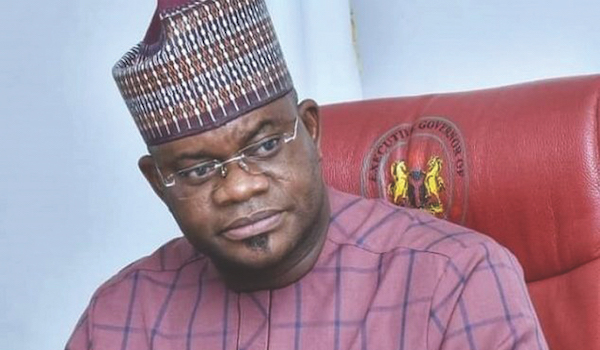By Kamil Opeyemi
The Federal High Court in Lagos has adjourned indefinitely an application filed by the Economic and Financial Crimes Commission (EFCC), seeking a stay of execution of the ruling that lifted a forfeiture order on some assets linked to the Kogi State Governor, Yahaya Bello.
Justice Nicholas Oweibo adjourned the hearing of the application sine die because the matter is now before the Lagos Division of the Court of Appeal.
In Feb. 22, the judge granted a temporary forfeiture order following an exparte motion filed by the EFCC seeking to seize 14 properties located in Lagos, Abuja and the United Arab Emirates (UAE), as well as N400 million, allegedly recovered from one Aminu Falala.
Following the order, Oweibo directed the commission to make publications in two national dailies for any interested party to show cause why a final forfeiture order should not be made.
Dissatisfied Yahaya Bello however filed an application seeking to vacate the interim forfeiture order.
His application was on the grounds that the properties listed were not proceeds of an unlawful act, as they were acquired long before he was elected governor.
On April 26, Justice Oweibo struck out a suit by the EFCC seeking the final forfeiture of the assets based on the provisions of Section 308(1) of the 1999 Constitution.
The Judge had held that “given the provisions of Section 308 of the Constitution, which provides immunity to a sitting governor from any civil/ criminal prosecution, the court lacks jurisdiction to entertain the matter.”
When the matter was called on Monday, the EFCC counsel, Rotimi Oyedepo (SAN), informed the court that he had filed an application dated April 27 seeking a stay of execution of the ruling pending the outcome of the appeal on the case.
But in his response, counsel to the Kogi State governor, Akoh Ocheni, asked the court to strike out the application because the anti-graft agency failed to comply with the rules of the court, which mandates it to file a written address along with the application.
Ocheni also informed the court that the matter is now before the Court of Appeal as records of proceedings have been transmitted to the upper court.
He argued that the lower court lacked the jurisdiction to continue to hear the application.
After listening to the lawyers, Justice Oweibo adjourned the matter sine die to await the appellate court’s decision.


